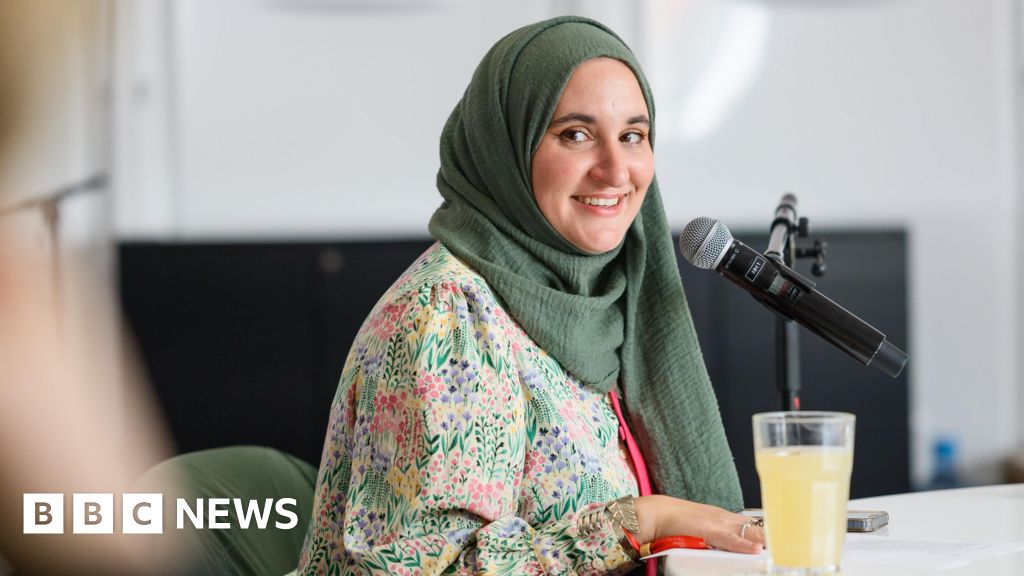- Transportation
enter your car’s VIN, license plate or make and model
时间:2010-12-5 17:23:32 作者:Interviews 来源:Podcasts 查看: 评论:0内容摘要:Associated Press writer Bassem Mroue in Beirut contributed.Associated Press writer Bassem Mroue in Beirut contributed.
But in February, Mercy Corps abruptly ended the program that was entirely financed by USAID. Two weeks later, one of the twins died, Bulama said.She has no more tears, only dread for what may come next.

“I don’t want to bury another child,” she said.Globally, 50% of the therapeutic foods for treating malnutrition in children were funded by USAID, and 40% of the supplies were., according to Shawn Baker, chief program officer at Helen Keller Intl and former chief nutritionist at USAID.

He said the consequence could be 1 million children not receiving treatment for severe malnutrition, resulting in 163,500 additional deaths per year. For Helen Keller Intl, its programs in Bangladesh, Nepal and Nigeria have been terminated.“It is very traumatic,” said Trond Jensen, the head of the United Nations humanitarian office in Maiduguri, Borno’s capital, of the funding cuts, noting that other donors, including the European Union, have taken similar steps this year. “One of the things is the threat to the lives of children.”

UNICEF still runs a therapeutic feeding center nearby, which now supports Bulama’s surviving baby, but its capacity is stretched. It is turning away many people previously served by other aid groups that have pulled out due to funding cuts.
Intersos, an Italian humanitarian organization, has the only remaining facility providing in-patient services for malnutrition in Dikwa, treating the most perilous cases. Its workers say they are overwhelmed, with at least 10 new admissions of seriously malnourished children daily.Conflict in eastern Congo is estimated to have killed 6 million people since the mid-1990s, in the wake of the Rwanda genocide. Some of the ethnic Hutu extremists responsible for the 1994 killing of an estimated 1 million of Rwanda’s minority ethnic Tutsis and Hutu moderates later fled across the border into eastern Congo, fueling the proxy fighting between rival militias aligned to the two governments.
“Today marks not an end but a beginning,” Congolese Foreign Minister Therese Kayikwamba Wagner said Friday before signing the broad agreement, which commits Rwanda and Congo to draft a peace accord and work to instill security and a good business environment, allow the return of the millions of displaced and accomplish other goals.“The good news is there is hope for peace,” she said. “The real news is peace must be earned.”
She directed part of her remarks to the civilians of east Congo, brutalized, isolated and displaced by the fighting: “We know you are watching this moment with concern, with hope and, yes, with doubt. You are entitled to actions that measure up to the suffering you have endured.”Rwandan Foreign Minister Olivier Nduhungirehe said the two rival governments were now addressing the root causes of the hostility between them, the most important of which he said were security and the ability of refugees to return home.
- 最近更新
- 2025-07-07 06:41:16Secure and steady returns: 7 best low-risk investments for retirees
- 2025-07-07 06:41:16Home equity loan vs. HELOC: Which is a smarter move for borrowing right now?
- 2025-07-07 06:41:16Original Medicare vs. Medicare Advantage: Which should you choose for health coverage?
- 2025-07-07 06:41:16How major US stock indexes fared Wednesday, 5/7/2025
- 2025-07-07 06:41:16Home equity loan vs. home improvement loan: Which is best for financing your next update?
- 2025-07-07 06:41:16Should you use a home equity loan to remodel or renovate your home?
- 2025-07-07 06:41:162 hospitals in northern Gaza are surrounded by Israeli troops, staff say
- 2025-07-07 06:41:16Trump tariffs likely to raise inflation, slow US economic growth: Fed
- 热门排行
- 2025-07-07 06:41:16A post shared by Candace Cameron Bure (@candacecbure)
- 2025-07-07 06:41:16Heavier IndyCars bring out frustration in drivers on 3rd day of Indianapolis 500 practice
- 2025-07-07 06:41:162025 EBRI/Greenwald Retirement Confidence Survey
- 2025-07-07 06:41:16Climate Migration: Nomads move to towns in warming Ladakh
- 2025-07-07 06:41:16State of the Automotive Finance Market: Q4 2024 [PDF]
- 2025-07-07 06:41:16How to catch the Eta Aquarid meteor shower, debris of Halley's comet
- 2025-07-07 06:41:163% match on IRA contributions with Acorns Gold ($12 monthly fee)Acorns Later
- 2025-07-07 06:41:16stocks wall street tariffs china trump
- 友情链接
- When top executives work remotely, it becomes more difficult to drag everyone else to their desks Disrupted or displaced? How AI is shaking up jobs Andrew Hill selects his best mid-year reads When top executives work remotely, it becomes more difficult to drag everyone else to their desks Rachel Reeves hires Alex Depledge as UK entrepreneurship adviser Gen Z’s particular twist on slacking could signal an insecurity about their job New York’s Gilded Age reimagined: The Fifth Avenue Hotel Can start-up success be taught? ‘Power hours’: how to make the most of your working day The Monday Interview with Matthew Garrahan The sports helping executives stay at the top of their game Business Book of the Year 2025 Working hard to look busy: why young employees are ‘task masking’ AI is the answer, whatever the question Is that afternoon golfing really a form of corporate education? Fresh stays in New York City: a hotel for every vibe Rachel Reeves hires Alex Depledge as UK entrepreneurship adviser Three top golf courses within swinging distance of Edinburgh Summer books 2025: the best titles of the year so far How the culture war is remaking advertising Sign up to the Working It newsletter for everything you need to get ahead at work ‘Power hours’: how to make the most of your working day Solid returns: The Wall Street Hotel, New York New York’s Gilded Age reimagined: The Fifth Avenue Hotel The Monday Interview with Matthew Garrahan How trauma changed my career path The Monday Interview with Matthew Garrahan The best business books to read this summer Scott Galloway: ‘This is the time to fight for America’ Tips from the top: an arty Saturday in Lagos with author and publisher Toni Kan
